Baby Desert Ornate Box Turtle for Sale – Exotic Pets | Blog
$149.99
Discover the captivating Baby Desert Ornate Box Turtle, known as the Sonoran Box Turtle. Learn about its vibrant shell and friendly nature. Find out how to care for it and where to buy one.
Category: TURTLES FOR SALE
Baby Desert Ornate Box Turtle for Sale: A Unique and Hardy Pet for Reptile Lovers
The **Desert Ornate Box Turtle** (*Terrapene ornata luteola*) is a captivating and hardy species native to the southwestern United States and northern Mexico. Known for its vibrant markings and rugged adaptability, this turtle is highly sought after by reptile enthusiasts and makes for a fascinating pet. These turtles are one of the few species that can thrive in arid environments, making them unique among other turtle species. If you’re thinking about adding one to your collection, this guide will provide everything you need to know about care, habitat, diet, and how to **buy a desert ornate box turtle** from a reputable seller like NewYorkReptiles.com.
The **Desert Ornate Box Turtle** is a subspecies of the more widely known ornate box turtle, distinguished by its ability to live in dry, desert-like environments. These turtles are relatively small, with adults reaching up to 6 inches in length, but they have a robust, domed shell with intricate patterns that make them stand out. Their shell features bold yellow or orange lines radiating from the center of each scute (the individual plates that make up the shell), giving them a striking appearance. This attractive pattern is one of the many reasons reptile lovers search for **desert ornate box turtles for sale**.
The desert ornate box turtle is known for its ability to burrow and hide to escape extreme temperatures, making it highly adaptable to the harsh desert environment. In captivity, they retain this instinct, often digging in their enclosures when temperatures fluctuate or when they want to feel secure.
Key Characteristics of the Desert Ornate Box Turtle
– **Size**: Adults grow to about 4-6 inches in length, making them a manageable size for most turtle keepers.
– **Lifespan**: With proper care, these turtles can live for over 30 years in captivity.
– **Color**: They have a domed shell with bold yellow or orange lines on a dark brown background, giving them a vibrant and distinctive look.
– **Habitat**: Native to arid regions, these turtles are accustomed to dry environments but require access to both warm basking spots and cooler, shaded areas.
Why Buy a Desert Ornate Box Turtle?
The **desert ornate box turtle** is an excellent choice for anyone looking for a small, hardy, and visually striking turtle. These turtles are relatively low maintenance compared to more aquatic species, as they do not require large amounts of water. Their size makes them easy to care for, and their distinctive appearance adds to their charm. Additionally, they have an interesting and active temperament. Unlike some turtles that tend to be shy, box turtles can become quite interactive with their owners, making them enjoyable to watch and care for.
If you’re considering **buying a desert ornate box turtle**, it’s important to understand their unique care requirements, which are different from turtles that live in more humid or aquatic environments.
Setting Up the Ideal Habitat for Your Desert Ornate Box Turtle
One of the key aspects of successfully keeping a **desert ornate box turtle** is replicating their natural environment as closely as possible. Although they are resilient turtles, proper care is essential for ensuring their long-term health and well-being.
### 1. **Enclosure Size and Type**
A **desert ornate box turtle** requires plenty of space to roam, dig, and explore. For a single turtle, a minimum of a 40-gallon terrarium or outdoor enclosure is recommended. If you plan to house more than one turtle, you’ll need a larger space to avoid overcrowding. Outdoor enclosures are ideal for these turtles, especially if you live in a warm, dry climate, but you can also successfully keep them indoors.
**Outdoor Enclosure**: If you live in a region with a similar climate to the turtle’s natural habitat (warm and dry), an outdoor enclosure can be a great option. Be sure the enclosure is escape-proof with walls that are at least 12 inches high and extend a few inches below ground, as box turtles are known diggers. Provide shaded areas and plenty of vegetation for hiding.
**Indoor Enclosure**: If keeping your turtle indoors, use a large terrarium with good ventilation. A large plastic bin, custom-built wooden enclosure, or glass terrarium can work well, as long as there’s ample space for your turtle to move around.
### 2. **Substrate**
Since **desert ornate box turtles** enjoy digging and burrowing, choosing the right substrate is essential. A mix of topsoil and sand works well, providing a soft material for digging and holding some moisture to prevent the environment from becoming too dry. You can also add leaf litter and sphagnum moss to help retain moisture and create a natural-looking enclosure.
The substrate should be several inches deep to allow for burrowing, which is a natural behavior for these turtles. Avoid using gravel or other materials that could be abrasive or difficult for the turtle to dig into.
### 3. **Temperature and Humidity**
Desert ornate box turtles are accustomed to a wide range of temperatures, but they thrive in warm conditions. The enclosure should have a temperature gradient, with one side of the enclosure providing a basking spot around 85-90°F and the cooler side staying around 70-75°F. Use a combination of heat lamps, ceramic heat emitters, or under-tank heaters to maintain the temperature.
At night, temperatures can drop slightly, but it’s important to avoid extreme cold, as this can stress the turtle.
Humidity levels should be kept relatively low, around 30-40%, but the turtle should have access to a small, shallow water dish to soak in if needed. Misting the enclosure lightly a few times a week can help maintain the appropriate humidity.
### 4. **Lighting**
Like all reptiles, **desert ornate box turtles** require access to UVB lighting to synthesize vitamin D3, which is essential for calcium absorption and healthy shell growth. Provide a UVB bulb in the enclosure, and ensure it is placed about 12 inches above the basking area. This light should be on for 10-12 hours a day to mimic the natural daylight cycle. Replace the UVB bulb every 6-12 months, even if it’s still working, as the UVB output diminishes over time.
### 5. **Hiding Spots and Decor**
Turtles are naturally inclined to hide and explore, so be sure to provide plenty of hiding spots. You can use logs, rocks, and pieces of driftwood to create natural hiding areas. Plants, both real and artificial, can also offer extra cover, although live plants may be nibbled on by your turtle. A secure, covered hide on the cooler side of the enclosure will give your turtle a place to retreat when they feel the need for privacy.
Baby Desert Ornate Box Turtle for Sale: Diet and Feeding
Desert ornate box turtles are omnivores, meaning they eat both plant and animal matter. In the wild, they forage for a variety of foods, including insects, fruits, vegetables, and even small animals. In captivity, it’s important to offer a well-balanced diet that mimics what they would eat in their natural environment.
### 1. **Protein Sources**
Insects should make up a significant portion of your **desert ornate box turtle’s** diet. Offer them crickets, mealworms, waxworms, and earthworms as protein sources. You can also provide small amounts of cooked chicken, fish, or commercial turtle pellets designed for omnivorous turtles.
### 2. **Fruits and Vegetables**
A variety of fresh fruits and vegetables should be offered daily. Suitable vegetables include dark leafy greens like kale, collard greens, and dandelion greens, as well as squash, carrots, and bell peppers. Fruits such as berries, apples, and melons can be given occasionally as treats but should not make up the bulk of the diet.
### 3. **Calcium and Vitamin Supplements**
To prevent metabolic bone disease and other health issues, it’s essential to dust the turtle’s food with a calcium supplement several times a week. You should also provide a multivitamin supplement once a week to ensure they are getting all the necessary nutrients.
### 4. **Feeding Schedule**
Adult desert ornate box turtles should be fed every other day, while juveniles can be fed daily. Always remove any uneaten food to prevent it from spoiling and attracting pests.
Behavior and Temperament
One of the most enjoyable aspects of keeping a **desert ornate box turtle** is observing their behavior. These turtles are generally curious and active, especially in the mornings and evenings when they are most likely to forage for food.
While they may be shy at first, desert ornate box turtles can become more comfortable with their owners over time, especially if handled gently and infrequently. They are not aggressive but can become stressed if handled too much. It’s best to limit handling to avoid unnecessary stress, especially in younger turtles.
Health and Common Issues
**Desert ornate box turtles** are generally hardy creatures, but like all reptiles, they can suffer from certain health problems if not cared for properly. Here are some common issues to watch out for:
### 1. **Shell Rot**
Shell rot is a bacterial or fungal infection that can occur if the turtle is kept in unsanitary or overly damp conditions. To prevent shell rot, ensure the enclosure is clean, dry, and well-maintained.
### 2. **Respiratory Infections**
Turtles kept in enclosures that are too cold or too humid can develop respiratory infections. Signs of respiratory illness include lethargy, nasal discharge, and difficulty breathing. If you notice any of these symptoms, consult a veterinarian immediately.
### 3. **Parasites**
Wild-caught turtles are often infested with internal or external parasites. If you buy a turtle from a reputable breeder or seller
, this is less of a concern. However, it’s a good idea to have your turtle checked by a veterinarian shortly after purchase to ensure they are free of parasites.
If you’re looking to **buy a desert ornate box turtle**, it’s crucial to purchase from a reputable seller who prioritizes the health and well-being of their animals. At **NewYorkReptiles.com**, we offer healthy, captive-bred **desert ornate box turtles for sale**, ensuring that each turtle has been raised in optimal conditions.
When you buy from a trusted source, you can be confident that your new pet is healthy, properly cared for, and ready to thrive in its new home. We provide all the information you need to create the perfect environment for your turtle and offer ongoing support for any questions or concerns you may have.
Conclusion
The **desert ornate box turtle** is a fascinating and hardy pet that’s perfect for reptile enthusiasts of all levels. Their striking appearance, manageable size, and unique care requirements make them an enjoyable and rewarding species to keep. Whether you’re looking to **buy a desert ornate box turtle** as your first reptile or to add to your collection, these turtles are sure to capture your heart.
When purchasing a **desert ornate box turtle for sale**, be sure to choose a reputable seller like NewYorkReptiles.com, where we prioritize the health and happiness of our animals. With the right care and attention, your desert ornate box turtle can become a beloved pet for decades to come.
Be the first to review “Baby Desert Ornate Box Turtle for Sale – Exotic Pets | Blog” Cancel reply
Related products
TURTLES FOR SALE
$149.99
TURTLES FOR SALE
$2,600.00
TURTLES FOR SALE
$299.99
TURTLES FOR SALE
Rated 5.00 out of 5
$249.99
TURTLES FOR SALE
$224.99
TURTLES FOR SALE
$299.99
TURTLES FOR SALE
Rated 5.00 out of 5
$274.99








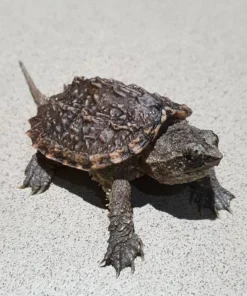
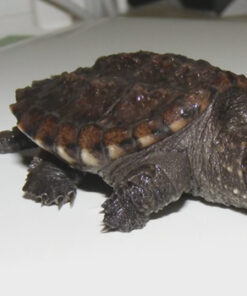




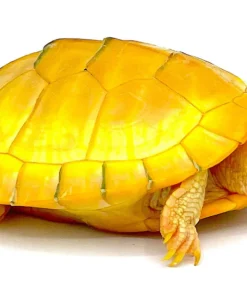



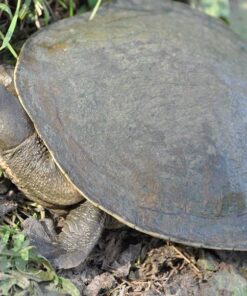
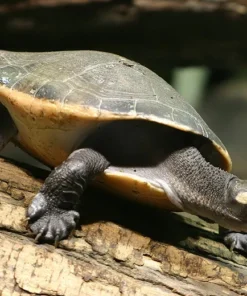
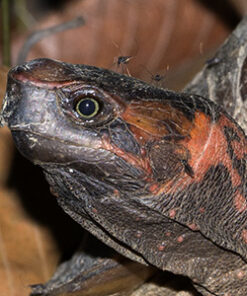
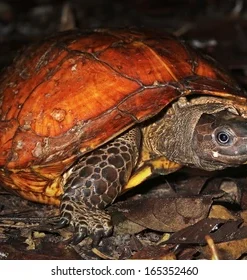
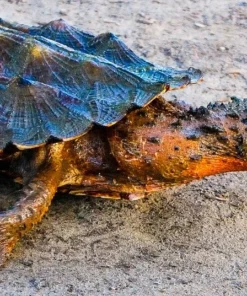
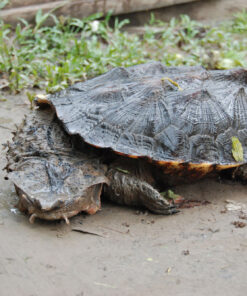
Reviews
There are no reviews yet.